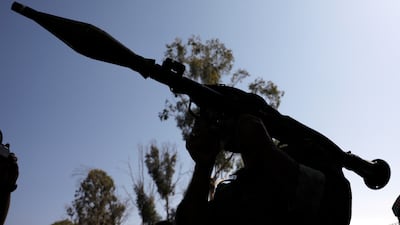Considering the terrible extent of Yemen's suffering in recent years, the past six months have been relatively peaceful, despite sporadic episodes of violence. It is the result of laudable international diplomacy and domestic engagement that brought about a temporary ceasefire agreement in April, which has since been extended twice in two-month tranches.
The hope is that a lull in the violence can help ease the country's humanitarian situation and provide the space for diplomacy and negotiations between both sides to reach a longer-term ceasefire, with the oversight of international partners.
"Relatively peaceful" for Yemen, however, still means an unacceptable amount of hardship, danger and uncertainty. And, as recent days have shown, without due attention the situation could soon get worse.
Both sides must remember that a longer ceasefire is in their interests. Taming the Houthis will be the biggest challenge going forward in this endeavour. They are violent, ideological and fall under the influence of Iran, with a government that is willing to use dangerous foreign proxies to get what it wants. The UN understands the importance of dealing not just with the Houthis but also with their backers abroad. On Monday the office of the organisation’s special envoy to Yemen, Hans Grundberg, said he had visited Tehran to discuss expanding the fragile truce.

The meeting came at a key moment. In recent days there have been a number of incidents that demonstrate the multifaceted threat the Houthis still pose, even during the current relative lull in violence.
Some of it is designed to exert pressure and test the limits of the goodwill of both their domestic opponents and the international community. Last week, the group drew significant global condemnation over a military parade in the key port city of Hodeidah. The show of force was viewed by many as a breach of an agreement in 2018 to demilitarise the city. On display were sea mines, drones, anti-ship missiles and much more.
Others are outright acts of violence. That same week a Houthi attack killed 10 pro-government soldiers just outside the besieged city of Taez. Under the new ceasefire, the group agreed to open roads and lift this same siege. It has not happened, and new violence raises fears that the Houthis are still prepared to sow instability to get what they want.
Continued instability and the resulting weak security situation also opens up opportunities for other dangers. On Tuesday, suspected Al Qaeda militants killed at least 21 Yemeni troops and wounded seven others in the south of the country.
Maintaining pressure on the group is key, and to some extent this is still being done. Saudi Arabia, for example, recently added five Yemenis to its designated terrorism list because of their support for the group. In tandem, diplomacy is also still showing promise. From the US to Oman, key players are demonstrating their commitment to solving the almost decade-long conflict. They are doing so even as new wars escalate abroad and global food, energy and economic crises worsen.
It is important they continue to do so and that Yemen's factions appreciate the engagement during these tough, distracting times. To go back on six months of important progress would be a betrayal of the country’s people, who must be given a chance to finally rebuild their lives.


